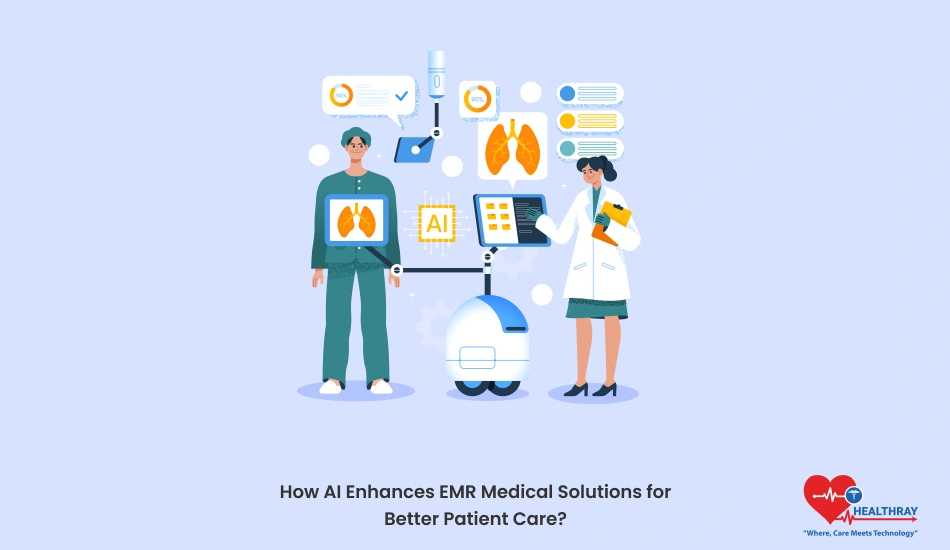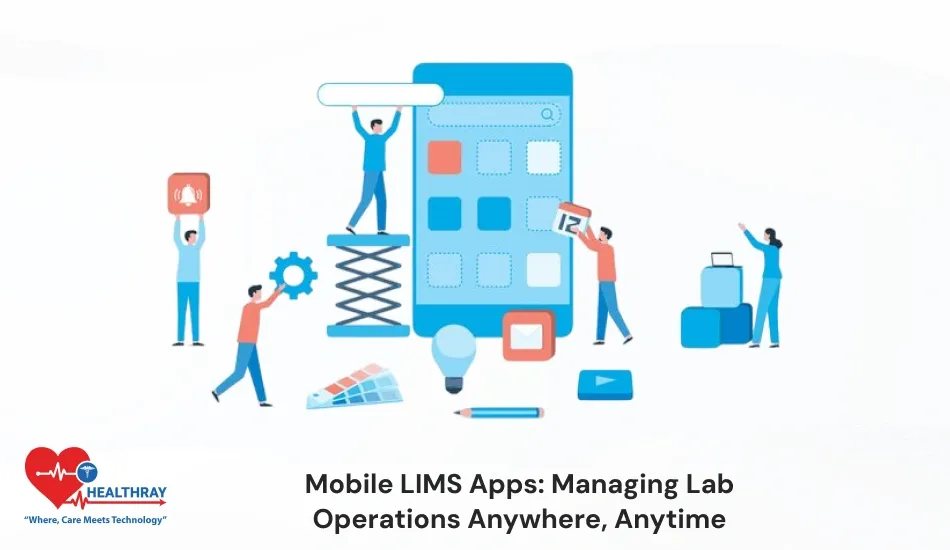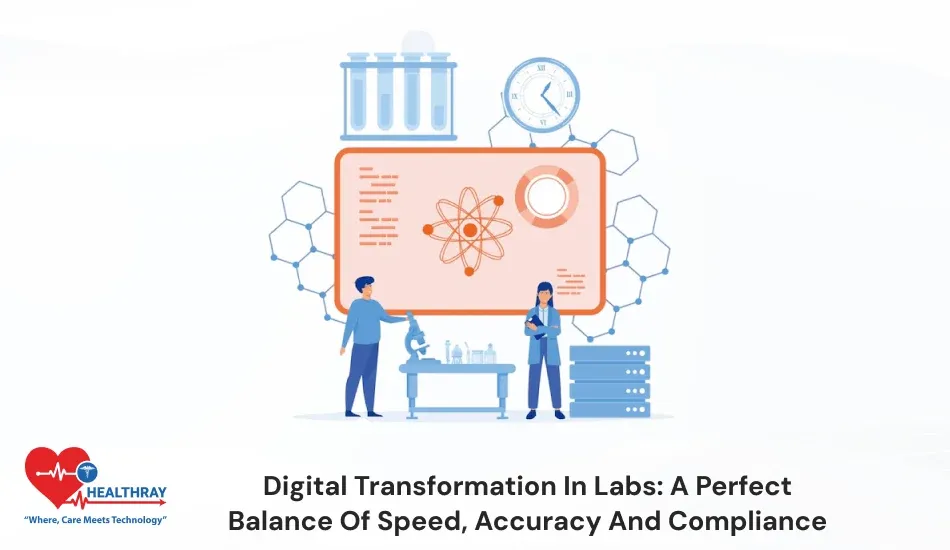How is AI changing EMR systems and patient care? By automating repetitive tasks, analyzing vast amounts of medical data, and assisting in diagnosis, AI is turning Electronic Medical Records (EMRs) into powerful tools for better healthcare. Healthcare professionals now spend less time on paperwork and more time focusing on their patients.
But that’s only the tip of the iceberg. From aiding doctors in quick, precise decisions to helping the hospital administrators better manage resources, AI in EMR Software is revolutionizing the entire healthcare ecosystem. For patients, it would mean more personalized care and faster response when needed the most.
This post explores in detail how AI is changing the EMR system for health providers, hospital administrators, developers, and even patients.
What is AI in EMRs?
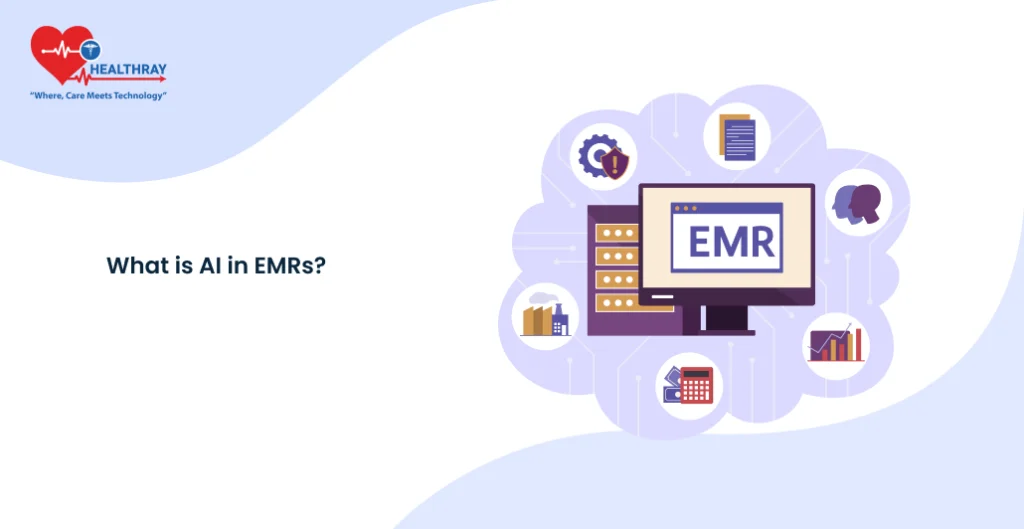
AI in EMRs refers to the use of artificial intelligence technologies like machine learning, natural language processing (NLP), and predictive analytics to enhance the capabilities of electronic medical records. While traditional EMR systems store and organize patient information, AI-powered EMRs go a step further by analyzing data to provide insights, recommendations, and automation.
For instance, AI can scan through a patient’s medical history and flag potential risks based on patterns in the data. It can also assist healthcare providers by summarizing key information from unstructured clinical notes, saving valuable time. This shift from static record-keeping to dynamic decision support is changing how healthcare is delivered.
The core idea is that EMRs should be made smarter and more proactive, from being just a depository of information to becoming instruments that help medical teams diagnose more quickly, personalize treatments, and predict outcomes. In all these, whether in identifying early signs of the disease or reducing the administrative burden, AI in EMRs is proving to be a game-changer.
Benefits for Healthcare Providers
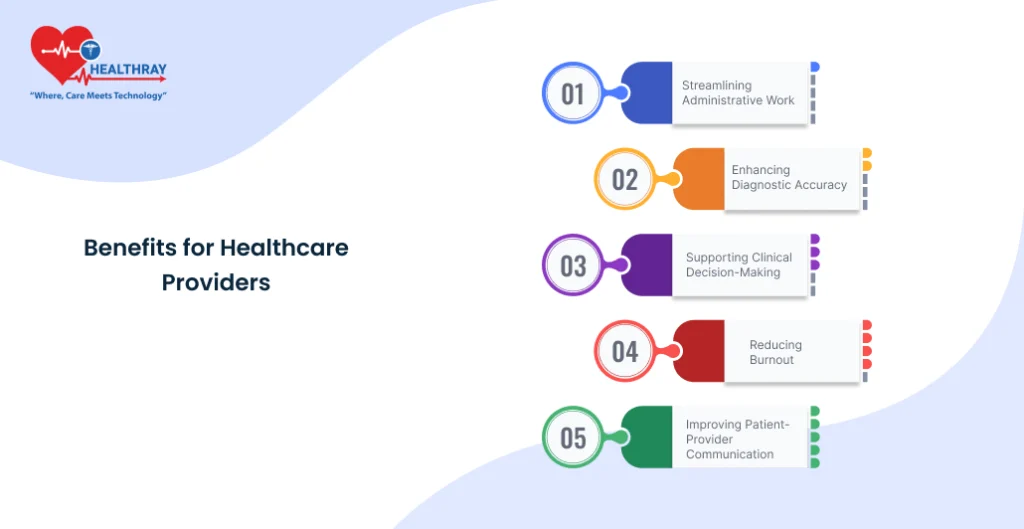
Healthcare providers often juggle multiple responsibilities, from patient care to administrative tasks. AI-powered EMR systems are stepping in to reduce this burden, allowing providers to focus on what matters most—patient outcomes. Here’s how:
Streamlining Administrative Work
This has the biggest challenge with regard to the time providers spend on repetitions, such as entering data into the patient’s record or documentation. It will ensure that once the information is entered correctly, it is done so expeditiously in terms of updating the patient’s record. For instance, with voice-to-text features through AI, notes may be transcribed from consultations, which would not require input manually. Such would give providers more time with their patients and less with a screen.
Enhancing Diagnostic Accuracy
AI systems integrated with EMRs can analyze patient data, lab results, and even imaging reports to identify patterns that might be missed otherwise. For example, machine learning algorithms can help detect early signs of chronic diseases like diabetes or hypertension. This leads to faster, more precise diagnoses and better treatment outcomes.
Supporting Clinical Decision-Making
AI-driven insights remove much of the guesswork around decision-making. Such a system can recommend treatment approaches, point out drug interactions, or alert to unusual test results based on a patient’s distinctive medical history. For a provider, this means they can make those decisions with more confidence and information.
Reducing Burnout
Burnout is a real issue in the medical field. By taking over tedious tasks and simplifying workflows, AI in EMRs helps reduce stress levels among healthcare providers. The ability to quickly access key patient information and delegate routine work to AI tools allows providers to focus on their core responsibilities.
Improving Patient-Provider Communication
AI can also help in better communication between the providers and patients. For example, integrated chat tools or virtual assistants can be used for follow-ups, answering simple queries, and even producing post-consultation summaries. The patient is thus informed and happy, and the follow-up work is reduced for the provider.
With these capabilities, AI in EMRs is not just a technological upgrade; it’s a lifeline for providers overwhelmed by the demands of modern healthcare.
Benefits for Hospital Administrators
Hospital administrators are tasked with ensuring efficient operations, managing costs, and improving patient satisfaction. AI-powered EMR systems offer tools that address these priorities and more. Let’s explore how AI makes a difference:
Optimizing Resource Allocation
It will analyze patient data trends in predicting the required resources. For instance, predictive analytics may enable administrators to anticipate the patient admission rate at flu seasons or other health events. Thus, it will always keep the hospital ready but not burdening the staff or wasting any resources.
Reducing Operational Costs
By automating administrative tasks, AI reduces the manpower and time required for routine processes. Tasks like billing, insurance verification, and scheduling can be streamlined, minimizing errors and saving money. Hospitals can reinvest these savings into patient care or other critical areas.
Enhancing Patient Satisfaction
AI helps administrators improve the overall patient experience. Systems that reduce wait times, offer appointment reminders, or provide virtual consultations enhance convenience for patients. Happy patients are more likely to recommend the hospital, boosting its reputation and appeal.
Improving Compliance and Reporting
Meeting regulatory requirements is a major challenge for healthcare facilities. AI in EMRs can track compliance metrics automatically, flagging any inconsistencies or potential violations. It also simplifies reporting by creating comprehensive and accurate reports for audits or quality assessments.
Supporting Data-Driven Decision Making
AI turns mountains of EMR data into actionable insights. Administrators can access dashboards showing patient trends, operational bottlenecks, or financial inefficiencies. This empowers them to make informed decisions that improve the hospital’s overall performance.
Preventing Errors
It includes from flagging duplicate tests to discovering inconsistency in the patients’ files; AI keeps high levels of accuracy up for the administrator, thereby saving money but enhancing the hospital’s credibility and trustworthiness.
AI-powered EMR is invaluable for hospital administrators in balancing efficiency, patient satisfaction, and compliance-all while cutting down operational stress.
Benefits for Patients
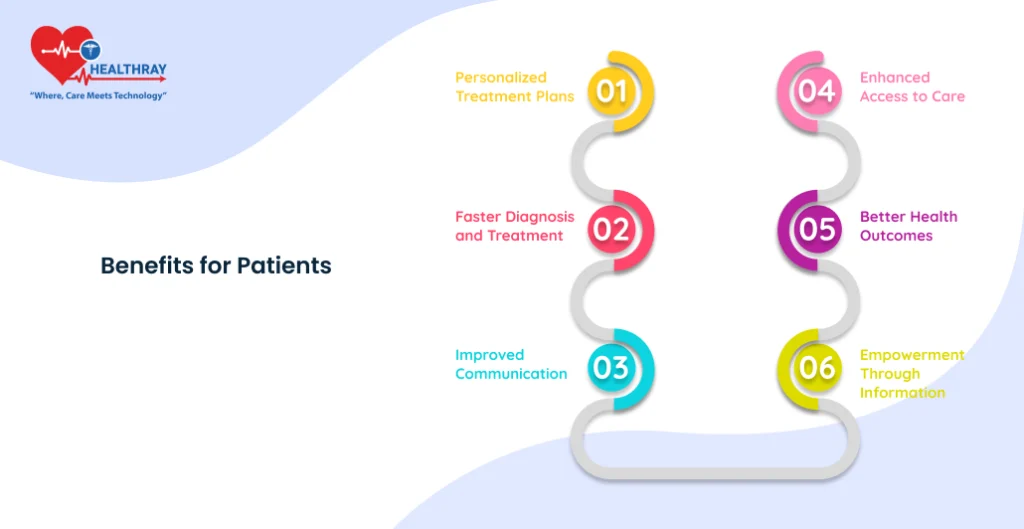
AI-powered EMRs are not just transforming healthcare for professionals—they’re also revolutionizing the patient experience. By making care more personalized, accessible, and efficient, AI ensures that patients reap tangible benefits.
Personalized Treatment Plans
AI analyzes each patient’s medical history, genetic data, and lifestyle factors to provide tailored treatment plans. For instance, an AI-integrated EMR system can flag potential drug interactions or suggest specific therapies based on prior outcomes. That level of personalization improves the quality and safety of care.
Faster Diagnosis and Treatment
Patients benefit from quicker diagnoses thanks to AI’s ability to analyze data in real time. By identifying patterns that might be missed during manual reviews, AI helps doctors catch conditions earlier, ensuring timely interventions. For patients, this means fewer delays in starting treatment.
Improved Communication
AI-powered chatbots and virtual assistants connected to EMRs provide patients with a direct line for common inquiries. For example, checking lab results or understanding medication schedules, these tools can be availed instantly without the need for follow-up visits or long wait times.
Enhanced Access to Care
Telemedicine platforms integrated with AI make healthcare accessible even in remote areas. AI-driven EMRs support these platforms by keeping patient records updated and providing real-time analytics for virtual consultations. This ensures consistent care no matter where the patient is located.
Better Health Outcomes
Through continuous monitoring of patient data, AI can identify the first signs of potential problems and warn both the patient and his or her healthcare provider. An example would be devices linked to EMRs which measure heart rate or blood sugar levels and alert for a deviation from the baseline level. The patient then experiences proactive care and fewer complications.
Empowerment Through Information
Patients can access their health records more easily, understand their conditions better, and take an active role in managing their health. AI tools also provide educational resources tailored to each patient’s diagnosis, promoting better understanding and compliance.
AI-powered EMRs are creating a healthcare environment where patients feel more informed, empowered, and cared for. The result? Stronger trust in healthcare systems and improved overall satisfaction.
Future Trends and Challenges
AI in EMR systems has already made significant strides, but the journey is far from over. Emerging technologies and innovations promise even greater transformations in healthcare. However, challenges remain that need addressing to ensure AI’s full potential is realized.
Emerging Trends in AI-Powered EMRs
Predictive and Preventive Healthcare
The future of AI will be more about predicting health issues before they occur. For instance, population data analysis to predict outbreaks or patient data analysis to predict individual health risks will make for more proactive care.
Integration with Wearable and IoT Devices
The future of EMRs involves seamless integration with wearable health devices and Internet of Things (IoT) technologies. This will allow for real-time monitoring of patient vitals and automatic updates to EMRs, enhancing both preventive care and chronic disease management.
Natural Language Processing (NLP) Advances
NLP is going to play a much larger role in interpreting the unstructured data, such as clinical notes or patient communication. EMRs will become better at providing actionable insights based on text-based inputs as NLP technology advances.
AI-Powered Virtual Health Assistants
Virtual assistants will go beyond answering basic queries. They will provide medical advice, schedule follow-ups, and even guide patients through post-treatment care using AI-enhanced knowledge bases.
Enhanced Data Interoperability
Efforts to standardize data formats and improve interoperability will make EMRs more collaborative across different healthcare providers. AI will be crucial in bridging gaps between disparate systems, ensuring seamless information exchange.
Challenges in AI-Powered EMRs
Data Privacy and Security
As EMRs handle sensitive patient information, concerns around data breaches and misuse are significant. Ensuring robust cybersecurity measures and compliance with regulations like HIPAA will be critical.
Ethical Concerns
AI decisions, particularly in treatment recommendations, must remain transparent and free from biases. Questions about accountability and fairness in AI-driven healthcare will need clear guidelines.
High Implementation Costs
While the long-term benefits are clear, the initial costs of implementing AI in EMR systems can be prohibitive for smaller healthcare providers.
Resistance to Adoption
Both patients and providers may resist AI technologies due to unfamiliarity or distrust. Training programs and awareness campaigns will be essential to bridge this gap.
Complexity in Integration
Integrating AI into existing EMR systems without disrupting workflows is a technical challenge. Developers need to ensure that new features complement rather than complicate current operations.
The future of AI in EMRs is bright, with opportunities to revolutionize healthcare further. By addressing these challenges head-on, the industry can ensure that AI benefits everyone involved, from patients to providers.
Conclusion
AI in EMRs is transforming healthcare by turning simple digital records into powerful tools for smarter, faster, and more effective care. For healthcare providers, it means streamlined workflows, better diagnostics, and reduced burnout. Hospital administrators can rely on AI to optimize resources, cut costs, and enhance patient satisfaction. Patients themselves are benefiting from personalized treatments, faster care, and greater access to information.
While data security, ethical concerns, and integration complexities are still there, the potential of AI in EMRs far outweighs these hurdles. The future of the Hospital Management System is moving towards more predictive, personalized, and preventive care, and AI is at the heart of these advancements.
As technology changes, it is important that innovation should focus on collaboration between humans and AI to ensure that the innovation supports the core mission of healthcare: improving patient lives. The future of healthcare stakeholders would be more connected and effective for everyone involved.
